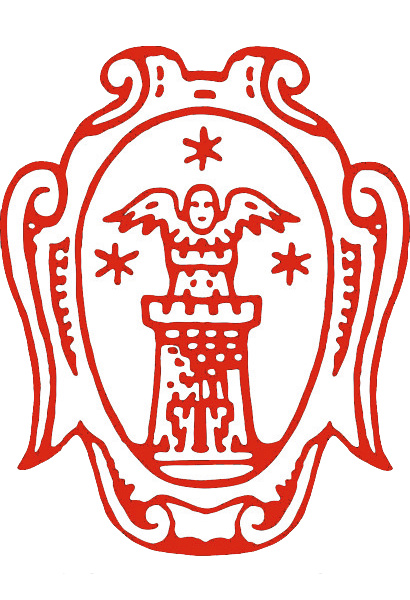 Angelo Rocca was born in 1545 in Rocca Contrada (now Arcevia) in the province of Ancona.
Angelo Rocca was born in 1545 in Rocca Contrada (now Arcevia) in the province of Ancona.
At the age of seven he entered the Augustinian convent of Camerino, where he undertook studies that he continued in Perugia, Rome and Venice. In 1577 he received a degree in Theology from Padua. Moving to Venice, he came into contact with a number of printers; in particular, he befriended Aldo Manuzio due to their common humanistic interests and became editor of his editions. With him Rocca published in 1576 the Observationi intorno alle bellezze della lingua latina, his first work, which was to remain his most important from a literary point of view and which gained him a reputation as an expert linguist in Latin, Arabic, Hebrew and Chaldean languages. His experience as an editor of texts led Agostino Molari da Fivizzano, Vicar General of the Order of Augustinians, to call him to Rome in 1579 to edit and illustrate the Summa de protestate ecclesiastica of the Augustinian theologian Agostino Trionfo. In 1585 he was appointed by Sixtus V as corrector of the Vatican Printing House and Secretary of the Congregation of the Index.
Included in Sixtus V’s grand cultural project was the creation of the first great library in the Catholic world, the Vatican Library, an undertaking in which Rocca was directly involved. Sixtus V also wanted him as a collaborator in the revision of the Vulgate Bible. In 1595 he was appointed Papal Sacrist. This office, an exclusive privilege of Augustinians since the time of Alexander VI, was of great importance, especially in the stages of papal election. As Sacristan Rocca was close to Pontiffs Clement VIII and Paul V. In the Vatican Palaces, where he lived, Rocca died on April 7, 1620, at the age of 75. He was buried in the chapel of St. Nicholas of the Tolentines in St. Augustine’s Church, where his confreres wanted to honor him with a plaque commemorating his human and cultural merits.

